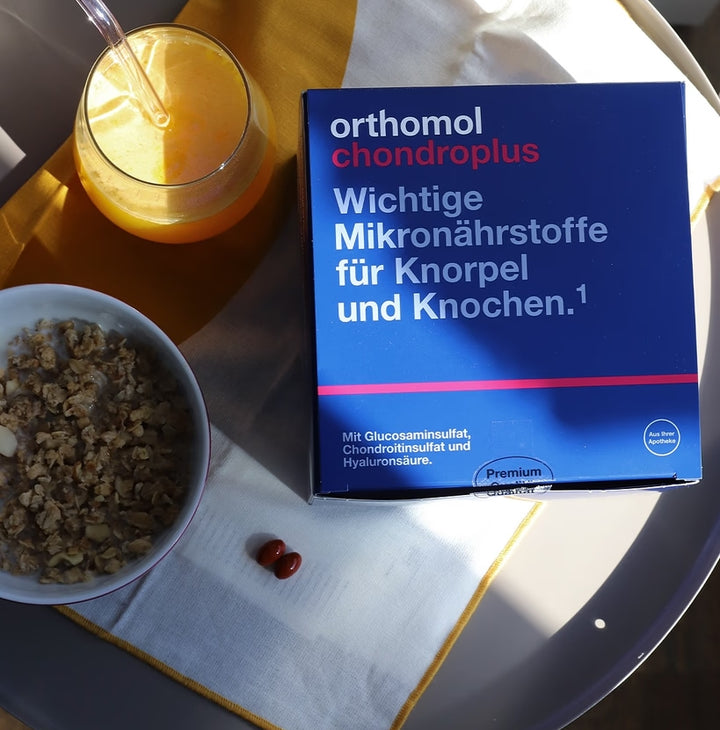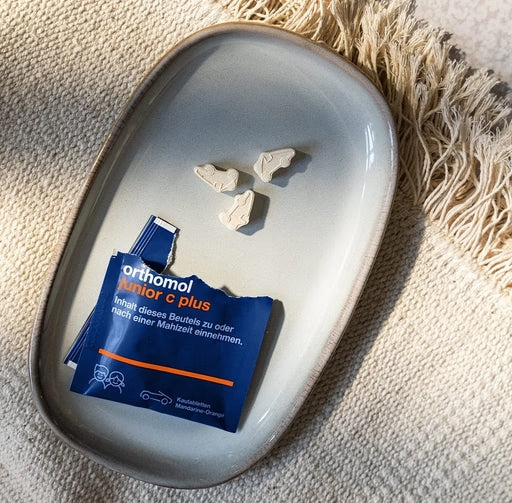
How to Strengthen Immunity against Seasonal Allergies?
Seasonal allergies, otherwise known as hay fever or allergic rhinitis, impact millions of people across the globe. As the season change, allergens such as mold spores, pollen, and other environmental aspects become more prevalent. This often leads to uncomfortable symptoms like itchy eyes, sneezing, runny nose, and congestion. While these allergic reactions may seem mild, they can affect the quality of life for those who suffer from them.
At the core of seasonal allergies is the immune system's system's overreaction to harmless substances, such as pollen from grass, trees, or weeds. When the immune system mistakenly identifies these substances as threats, it releases histamines and other chemicals that trigger the allergic response. Strengthening your immune system helps lower the intensity and frequency of these allergic reactions, offering relief and promoting overall health.
Read on to understand what triggers seasonal allergies and five effective ways to bolster your immune system.
What Triggers Seasonal Allergies?
Seasonal allergies occur when the immune mechanism reacts to allergens that are present in the environment at certain times of the year. The most common triggers are listed below:
Pollen
Pollination is important for plant reproduction; however, for those who struggle with allergies, it is a primary source of discomfort and trouble. Tree pollen in the spring, grass pollen in the summer, and weed during the fall are the main culprits.
Mold Spores
Mold thrives in warm, damp conditions and releases spores that become airborne. These spores can be specifically troublesome during late summer and fall, as decaying plant matter offers the perfect breeding ground for mold.
Dust Mites
While not strictly seasonal, dust mites tend to improve in numbers during the humid months of summer. These tiny creatures, found in household dust, can trigger allergic reactions.
Animal Dander
Many people are allergic to proteins found in pet dander, which is a year-round issue but becomes worse during certain seasons when pets shed more hair.
Air Pollution
Pollution can aggravate allergies by inflaming the respiratory system. Pollen can bind with pollutants, increasing the severity of allergic reactions.
Understanding your specific triggers and taking preventive measures can make a huge difference in managing symptoms.
How to Strengthen Immunity against Seasonal Allergies?
Find tips for bolstering immunity against seasonal allergens below -
Support your Gut Health
The gut is core to immune function, and maintaining a healthy microbiome is important for regulating immune response, which includes allergic reactions. 70% of the immune mechanism sits in the gut, which means that your gut health leaves a direct impact on overall immunity. To improve gut health, you need to focus on everything, including diet, natural remedies, and immune system support during allergy seasons. These beneficial bacteria can be found in fermented foods such as yogurt, kefir, sauerkraut, and kimchi. You can also take a high-quality probiotic supplement to ensure that your gut maintains a healthy balance of bacteria. In addition to probiotics, eating prebiotic-rich foods like bananas, garlic, and onions will help nourish the good bacteria in your gut.
Furthermore, avoid processed foods and excessive sugar intake, as these can promote the growth of harmful bacteria and weaken the immune system. A fiber-rich diet of whole grains, fruits, and vegetables also supports digestion and immune function.
Incorporate Anti-Inflammatory Foods and Supplements
Inflammation plays a significant role in the allergic response. When the immune system overreacts to allergens, it triggers an inflammatory response that results in symptoms like sneezing, congestion, and itchy eyes. By incorporating anti-inflammatory foods and supplements into your diet, you can help reduce the severity of these symptoms.
Key anti-inflammatory foods include:
Fatty fish (such as salmon, mackerel, and sardines): Rich in omega-3 fatty acids, which help reduce inflammation and regulate immune function.
Turmeric: This spice contains curcumin, a potent anti-inflammatory compound that has been shown to reduce allergic symptoms.
Ginger: Known for its ability to reduce inflammation, ginger can be consumed fresh, as a tea, or in supplement form.
Leafy greens: Spinach, kale, and other leafy greens are packed with antioxidants and essential nutrients that support the immune system.
Berries: Blueberries, strawberries, and other berries are rich in antioxidants that combat inflammation and boost immunity.
Supplements like quercetin, bromelain, and vitamin C are also beneficial. Quercetin is a natural antihistamine found in apples, onions, and other plant-based foods, while bromelain (found in pineapple) helps to reduce inflammation. Vitamin C boosts overall immune function and can help modulate the allergic response.
Stay Active with Regular Exercise
Exercise has numerous benefits for the immune system, including its ability to strengthen immune responses and improve overall health. Regular physical activity promotes better circulation, allowing immune cells to move more efficiently throughout the body, which helps the immune system detect and respond to allergens more effectively.
Exercise also supports lung function, reducing the severity of respiratory symptoms associated with seasonal allergies. Activities like walking, jogging, swimming, or cycling can improve cardiovascular health and boost immunity. Aim for at least 30 minutes of moderate exercise most days of the week.
However, if you'reyou're prone to pollen allergies, it'sit's important to time your workouts carefully. Pollen counts are typically highest in the early morning and late afternoon, so exercising indoors or choosing a time when pollen levels are lower will help you avoid triggering allergy symptoms.
Prioritize Sleep and Stress Management
Sleep is one of the most critical factors in maintaining a healthy immune system. Poor sleep weakens immune function, leaving the body more susceptible to infections and allergic reactions. Adults should aim for 7-9 hours of quality sleep each night to allow the body to repair and restore itself.
Stress is another factor that can weaken the immune system and exacerbate allergy symptoms. Chronic stress causes the release of cortisol, a hormone that, in high levels, suppresses immune function. Managing stress through mindfulness techniques, yoga, deep breathing exercises, or meditation can help regulate immune responses and reduce the likelihood of allergic reactions.
Incorporating relaxation techniques into your daily routine can provide long-term benefits for your immune system and overall well-being.
Boost Your Immune System with Supplements
In addition to eating a balanced diet, incorporating targeted supplements can provide your immune system with an extra boost during allergy season. Some key supplements to consider include:
Vitamin D: Often referred to as the ""sunshine vitamin,"" vitamin D plays a crucial role in immune regulation. Low levels of vitamin D have been linked to an increased risk of allergies and respiratory infections.
Zinc: This essential mineral supports immune function and helps the body fight off infections and inflammation. Zinc has also been shown to reduce the severity of allergy symptoms.
Vitamin C: Known for its immune-boosting properties, vitamin C also has natural antihistamine effects that can help reduce allergic reactions.
Elderberry: A popular herbal remedy, elderberry is packed with antioxidants and has been shown to enhance immune function. It'sIt's often used to combat colds and flu but can also help reduce inflammation and allergic symptoms.
Probiotics: As mentioned earlier, probiotics play a crucial role in gut health and immune regulation. Taking a high-quality probiotic supplement can help maintain a balanced immune response and reduce the risk of allergy flare-ups.
Conclusion
Strengthening your immune system is an effective way to reduce the impact of seasonal allergies and improve overall health. By focusing on gut health, incorporating anti-inflammatory foods, staying active, prioritizing sleep and stress management, and using targeted supplements, you can better equip your body to handle seasonal allergens. Remember that consistency is key when it comes to boosting your immune system—making small, sustainable changes can lead to long-term relief from seasonal allergies.
Orthomol offers a range of high-quality supplements designed to support immune health, making it easier for you to stay proactive during allergy season. With the right approach, you can enjoy the changing seasons without the burden of allergy symptoms.




